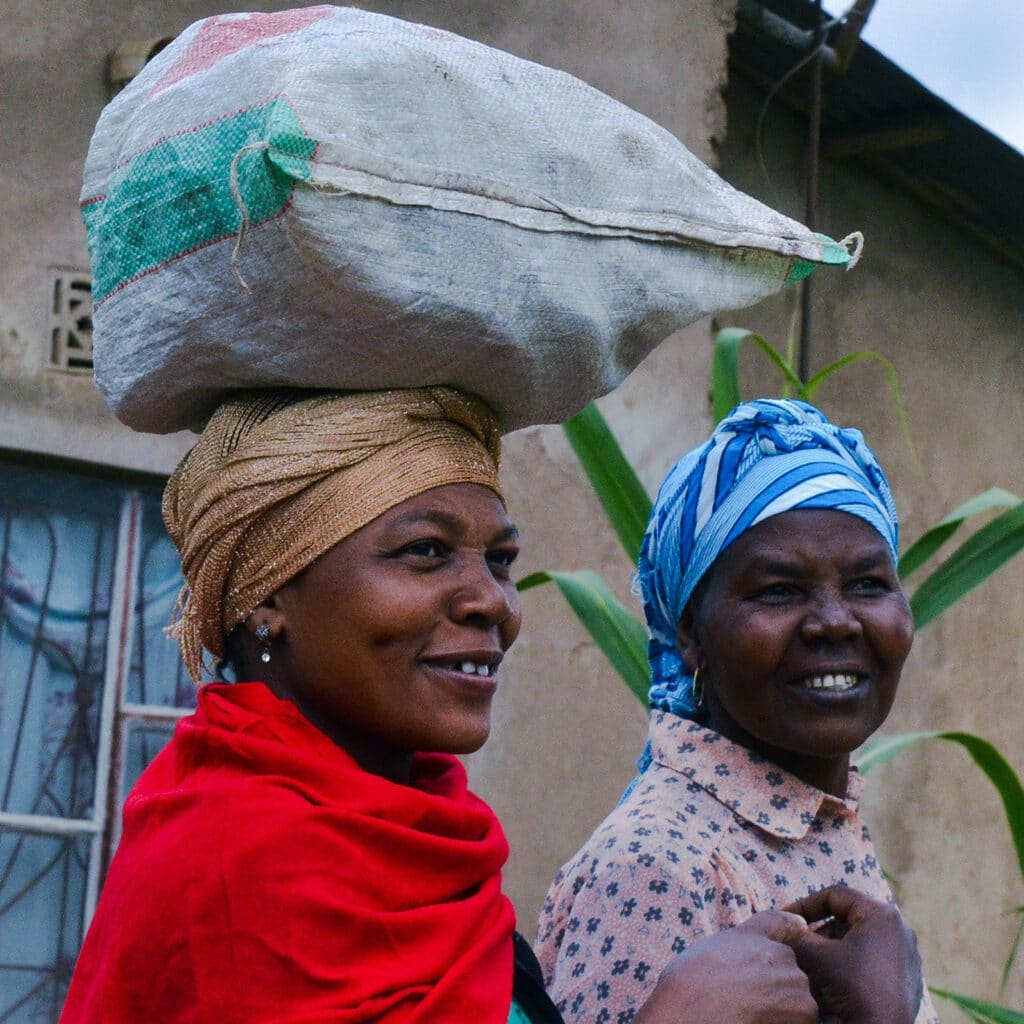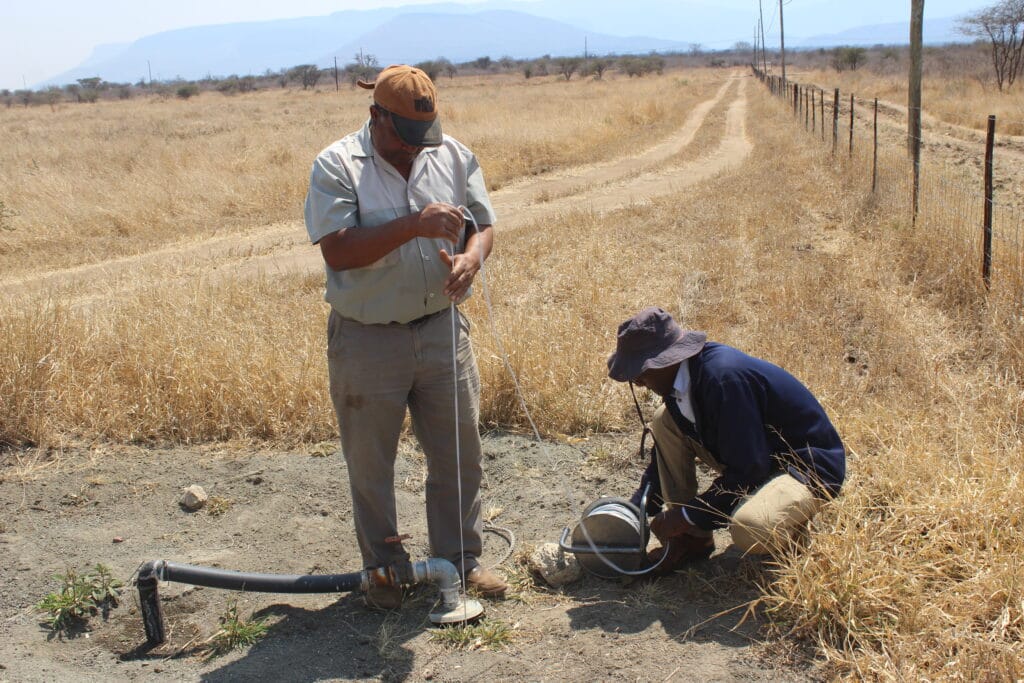Citizen scientists: Perhaps without a degree, but certainly making a difference
23-02-21

The opinion piece Citizen scientist. Perhaps without a degree, but certainly making a difference was first published in South Africa’s News24 6 February 2021.
Anyone can be a citizen scientist and assist in capturing data that will help with research. Jacqueline Goldin writes about the Danida supported research project Enhancing Sustainable Groundwater use in South Africa where farmers are helping to collect data.
You might think that only scientists with “big” degrees, white gowns, crests and badges are capable of collecting scientific data. You most likely believe that if data comes from these specialists; the ones who bring the “truth”; then it is real data and you feel you can trust it.
But what if you are wrong?
What if the ordinary person can do it just as well? What if data isn’t any better if it is collected from “real” scientists and that in fact there are “real” scientists who aren’t considered to be scientists at all.
We are in a very small village called Ga-Komape and Ga-Manamela right up near the Zimbabwe border in the Limpopo Province.
Most of the farmers in this potato growing area use water from under the ground (groundwater) which they pump out of their wells.
These farmers are kilometres away from anywhere. It’s quiet here. It’s remote and it is very difficult to access and the roads are bad. The distances from one village to another are vast.
So how does the government manage to find out about the water in the wells? How much is there? How dirty is it? How much is available for the farmers to use?

An impossible scenario?
It’s an impossible scenario because the government cannot obtain the necessary information in such distant places. Is there not a way that what is under the ground can be made visible?
Our project solved this very conundrum. It trained farmers in these small villages to put dip-meters into their wells and read from the dip-meters how much water is available. These measurements are captured on smartphones. Can we trust this information?
We know from an extra-ordinary project entitled “the Zooniverse” where over 200.000 people around the world are looking at the stars and counting the rings around the planets, or monitoring noise volumes in New York, that it is possible for ordinary citizens like you and me to provide very reliable and trustworthy data; making available huge datasets that would otherwise be quite impossible to put together.
In the same way, here in Ga-Komape and Ga-Manamela and in many other villages in this remote area of the Limpopo we are doing the very same thing as these thousands of citizens around the world are doing.
We are relying on farmers to give us data that is otherwise inaccessible and we know that this data is trustworthy and reliable because we have sent the “real” scientists in to test the measurements. They are the right ones. The technical word for this is “citizen science” but let us just say that its ordinary people like you and me who in this case put dip-meters into their wells; that are able to fill a void and tell us what water is rumbling and grumbling under the earth.
Farmers are not only looking at the level of water in their wells, they are also telling us how much it rained, what the rivers and streams look like from photographs they are sending us showing whether or not there is water flowing. And this is valuable information that gets captured on an app from their smartphones and is relayed to an internet site where farmers, housewives, tourists, and government can see what is going on under the ground.
This is falling in love with the world
This is science. And for us, it’s the same thing. Science helps us fall in love with the world. And as the Financial Times (December 2020) is quoted as saying, “… for every complex problem there is an answer that is clear, simple and wrong” and what we present here is the wrongness scientists do not have to have degrees, scientists can be farmers anywhere and everywhere, collecting reliable information and sharing it on various platforms.
Diamonds on the soles of their feet
Whether its counting butterflies or blossoms, elephants or lions on the Serengeti planes, noise pollution in New York, or water levels in the Limpopo, we need the people who have, “diamonds on the soles of their feet”.
The richness and value of what is being collected all around the world, and in our own backyard in the Limpopo (thanks to the Water Research Commission, Pretoria) is not just newsworthy, it glitters and sparkles in the hearts and minds of those millions of volunteers around the globe who all – in different ways are wearing diamonds on the soles of their feet.
Bravo to those in the Limpopo for being part of the family of volunteers who make a difference by giving us data we could not otherwise have because it is too expensive and frankly quite impossible – to collect as it is simply in places that are too remote to be accessed.
Citizen Scientists around the world are doing it for us as we speak.
Professor Jacqueline Goldin, Extraordinary Associate Professor, Centre of UNESCO Chair in Groundwater, Department of Earth Sciences, is based at the University of the Western Cape. Jacqueline Goldin is working on a Water Research Commission (WRC) Project that builds on the Danida supported research project Enhancing Sustainable Groundwater Use in South Africa (ESGUSA) through the University of Copenhagen and wrote the first drafts of the article while participating in the communications training seminar “Bridging the Gap. Science for the public”, Dec. 2021.
Go back to our stories